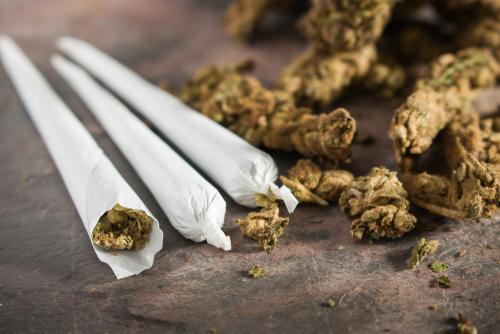Can Police Search You or Your Vehicle if They Smell Marijuana?
 In recent years, the recreational and medical use of marijuana has become legal in several states across the country. Currently, 33 states, including Connecticut, permit the medicinal use of marijuana, and 11 states and the District of Columbia allow the recreational use of marijuana for adults. Even just 10 years ago, police could use the “smell of marijuana” as a legitimate reason to search a citizen’s vehicle or person for evidence which could be used to pursue charges for drug possession or DUI. However, times have changed, and some courts have found that this is not an adequate reason to conduct a search.
In recent years, the recreational and medical use of marijuana has become legal in several states across the country. Currently, 33 states, including Connecticut, permit the medicinal use of marijuana, and 11 states and the District of Columbia allow the recreational use of marijuana for adults. Even just 10 years ago, police could use the “smell of marijuana” as a legitimate reason to search a citizen’s vehicle or person for evidence which could be used to pursue charges for drug possession or DUI. However, times have changed, and some courts have found that this is not an adequate reason to conduct a search.
Is Marijuana Odor Considered Evidence?
Now that more than half of the states have legalized marijuana in some way, lawmakers and law enforcement officials have run into an issue of constitutionality when it comes to using the smell of marijuana as probable cause to search a vehicle or a person. In the minority of states that have not legalized marijuana, a police officer who believes they smell pot has probable cause to search a vehicle in most cases. In other states, however, the line has become blurred, because the smell of pot does not necessarily point to a crime.
“Pot Smell” and the Fourth Amendment
The “automobile exception” has long been recognized by the Supreme Court as an exception to the Fourth Amendment, which states that citizens have the right to be free from unreasonable searches and seizures without a warrant. In many cases, a vehicle may be searched without the need to obtain a warrant if an officer has probable cause to believe that a crime has been committed. Police have long used the smell of marijuana as an excuse to conduct vehicle searches, though it is now being reconsidered whether or not the supposed presence of this type of odor is enough to allow a warrantless search. Courts in many states, such as Pennsylvania, Massachusetts, Vermont, and Maryland, have ruled that marijuana odor no longer gives police the right to search a vehicle.
Confusion Surrounds the Pot Smell Issue
Currently, there is no official conclusion on whether or not the smell of marijuana is enough to allow officers to search a vehicle or a person. Many states that have legalized recreational marijuana have concluded that there are very few instances in which the smell of marijuana could justify a vehicle search. However, even in states where marijuana has been legalized, certain activities are still illegal, such as driving while under the influence of marijuana. In these cases, probable cause to perform a search could potentially be based on odor.
In a recent case in Maryland, a court ruled that the search of a man’s vehicle using the smell of marijuana as probable cause was not unconstitutional, because pot is still considered to be contraband. However, the court did rule that the smell of pot was not probable cause to search the man himself.
A Hartford, CT Criminal Defense Lawyer Can Help
In the state of Connecticut, medical marijuana has been legal since 2012, and possession of a half-ounce or less of marijuana has been reduced to a civil violation rather than a crime. If you have been arrested and charged with a crime because a police officer “smelled marijuana” in your vehicle, you need to contact a Connecticut drug crimes defense attorney right away. At the Woolf & Ross Law Firm, LLC, we can help you fight criminal charges based on an unconstitutional search of you or your vehicle. Call our office today at 860-290-8690 to schedule a free consultation.
Sources:
https://www.nbcchicago.com/news/national-international/In-Era-of-Legal-Pot-Can-Police-Search-Cars-Based-on-Odor-560242711.html
http://www.abajournal.com/news/article/after-decriminalization-pot-smell-and-joint-didnt-justify-search-court-says-hemp-laws-also-raise-issues






